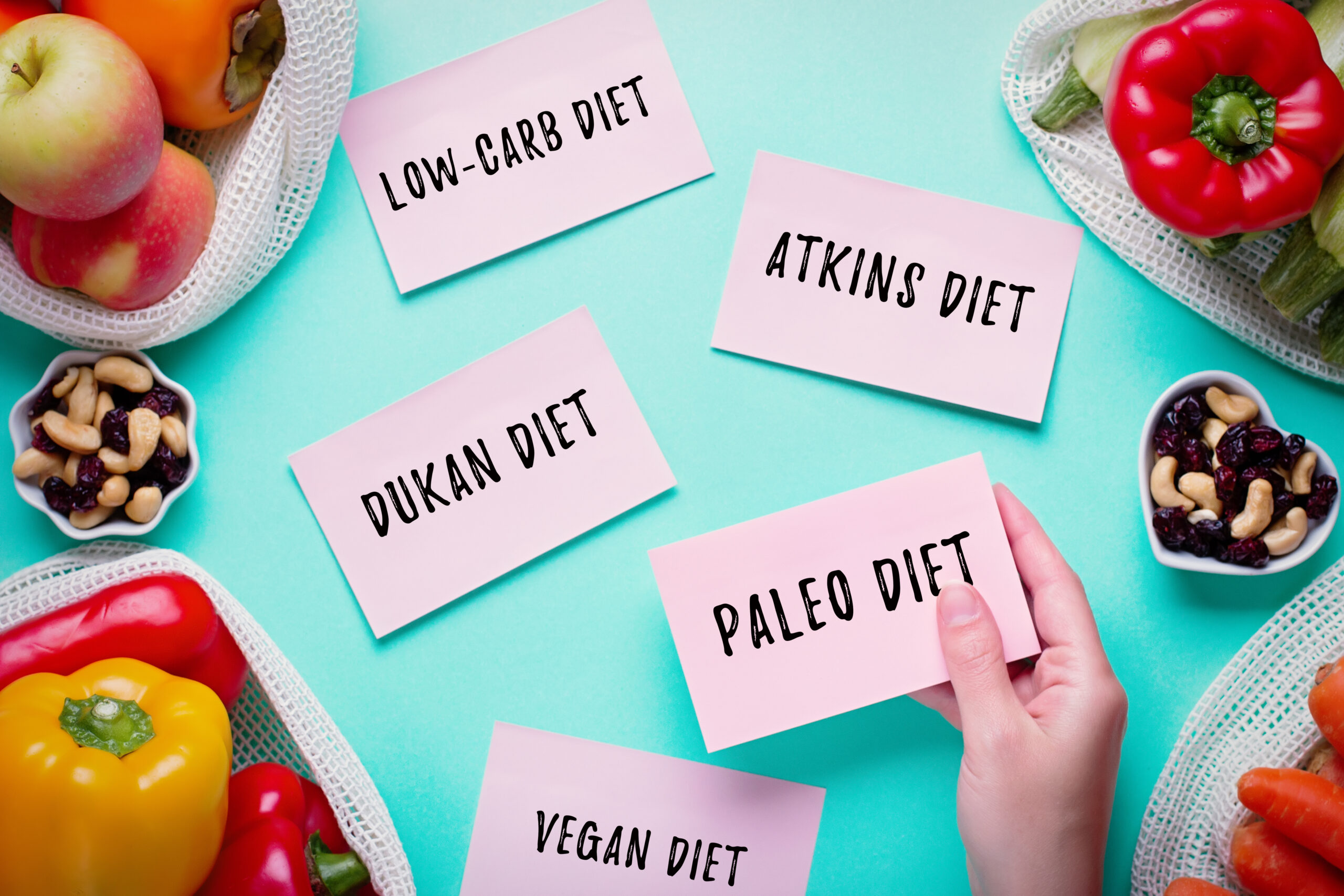You want to try a diet. I get it. I am not here to stop you. It’s that time in the middle of winter when you have that panic moment – you’ve been super busy at work the holidays threw you off and you started a fitness kick but stopped it at the end of dry January.
So here is a list of popular diets – and some criteria to consider before going on one. I am also including DAO resources with deep dives on the super popular ones – Keto, Paleo, and Intermittent Fasting.
DISCLAIMER: THIS IS FOR ENTERTAINMENT PURPOSES ONLY, AND NOT INTENDED TO BE A PERSONAL ENDORSEMENT OF ANY DIET.
Diet Criteria
Is this diet sustainable for you? Can you do it for more than a few weeks? If not, you will likely gain the weight back soon after you stop, if you lose any at all.
● Is this diet overly restrictive? If you’re going to feel deprived, don’t do it. If it eliminates a food you can’t imagine living without, don’t do it. I can’t live without cheese, for example. I have tried to say good bye and I choke, try to walk away and I stumble, I just CANNOT.
● Will you be able to live your life while on it? If the diet or regime (see intermittent fasting) will be really disruptive of your life at home, with family or friends, or make it awkward with co-workers, reconsider. This is not about passing up wine with dinner because you are making healthier choices. More like, you skip dinner all together because they menu does not have any “low FODMAP” foods.
● Will you be adequately nourished? Super low calorie diets, or ones that cut out one or multiple food groups are likely to make you snap and eat your weight in dill pickle potato chips (for instance).
And one last consideration that is important for women: Will it mess with your hormones? Because cutting too many carbs and going too extreme with fasting can totally do that. I cover this in my deep dives below.
And now, your A-Z guide to the most popular diets.
For my experience with different diets, click on the article below, and for my video presentation of diet culture throughout the centuries, click on the video below:
Your A-Z Guide, Plus DAO Resources
Article with overview of diets, plus links for deep dives on Keto, Paleo and Intermittent Fasting:
A-Z Index of Diets
A) Atkins Diet - A low-carbohydrate diet that emphasizes protein and fat intake. You start out with less than 20 grams of carbs a day. To get a visual of 20 grams of carbs in one day, that is literally a slice of wheat bread and a handful of berries. Most high protein, high fat foods do have some carbs so that's why bread is usually off the menu, period, as well as fruit.
B) Beverly Hills Diet - The Beverly Hills Diet is the extreme die that swept California - and is reportedly loved by celebrities such as Britney Spears and Jessica Simpson, who are said to have lost weight(opens in new tab) following the plan. This food combining, fruit-heavy diet means you don't mix food groups. It's very low-calorie too, just 800 to 1,000 calories a day,
C) Calorie Restriction Diet - A diet that restricts calorie intake to promote weight loss and improve overall health. CICO is another name for this. I would debate whether this is a diet - it's more like simple math. You have to take in less calories than you expend to lose weight. Here's my post about metrics that explains this.
D) Dukan diet - Lean protein, oat bran, water, and a daily 20-minute walk are at the heart of the plan. Kate Middleton relies on this when she needs to drop a few.
E) Eat-Clean Diet - A diet that emphasizes whole, unprocessed foods and limits processed and packaged foods.
F) Flexitarian Diet - A plant-based diet that allows for occasional meat consumption.
G) Gluten-Free Diet - A diet that eliminates gluten, a protein found in wheat, barley, and rye.
H) High-Protein Diet - A diet that emphasizes protein-rich foods to support weight loss and muscle growth.
I) Intermittent Fasting - A diet that involves periods of fasting and non-fasting to promote weight loss and improve health. Technically, this is more of a lifestyle, not a diet, but many people do combine it with a low-carb diet to accelerate their results.
J) Juice Cleanse - A diet that involves consuming only juice for a set period of time to detox the body.
K) Ketogenic Diet - A high-fat, low-carbohydrate diet that puts the body in a state of ketosis for weight loss and improved health. It is different than Atkins in that the protein intake is more moderate.
L) Low-Fat Diet - A diet that emphasizes low-fat foods and limits high-fat foods for weight loss and improved health.
M) Mediterranean Diet - A diet that emphasizes plant-based foods, whole grains, and lean protein found in the traditional cuisine of the Mediterranean region.
N) Nordic Diet - A diet that emphasizes whole grains, root vegetables, and game meats found in traditional Nordic cuisine.
O) Ornish Diet - A low-fat, plant-based diet that promotes heart health and weight loss.
P) Paleolithic Diet - A diet that emphasizes whole, unprocessed foods like those consumed by early humans during the Paleolithic era.
Q) Quick Weight Loss Diet - A diet that promises rapid weight loss through restrictive eating and lifestyle changes.
R) Raw Food Diet - A diet that emphasizes uncooked, unprocessed foods for improved health and weight loss.
S) South Beach Diet - A low-carbohydrate diet that emphasizes healthy fats and protein for weight loss.
T) Therapeutic Lifestyle Changes (TLC) Diet - A diet designed by the National Cholesterol Education Program to lower cholesterol and improve heart health.
U) Unprocessed Food Diet - A diet that emphasizes whole, unprocessed foods and limits processed and packaged foods.
V) Volumetrics Diet - Volumetrics was created by Barbara Rolls, Ph.D., a professor of nutrition at Penn State University. The strategy here is simple: Fill up on foods that provide the most nutrition for the least amount of calories. Foods are divided into four categories, from least energy-dense (fruits, non-starchy vegetables, broth-based soups) to most energy-dense (crackers, cookies, chocolate, nuts, and butter); dieters plan their meals to include as many of the lower-density foods as possible.’
v) Vegan - Vegans shun all animal products, including dairy, eggs, and honey. While many choose this lifestyle for ethical or environmental reasons, some people look to the vegan diet for weight loss as well. And with the new era of plant-based meats, going vegan is easier than ever.
How it works for weight loss: Just going vegan won’t necessary help you drop the weight.
W) Weight Watchers Diet - A diet that emphasizes portion control and mindful eating for weight loss.
X) Xenical Diet - A prescription weight loss medication that blocks the absorption of fat in the gut.
Y) Yoga Diet - A holistic approach to diet that emphasizes plant-based foods and mindful eating practices inspired by yoga philosophy.
Z) Zone Diet - A diet that emphasizes balanced meal ratios of carbohydrates, protein, and fat for improved health and weight loss.






